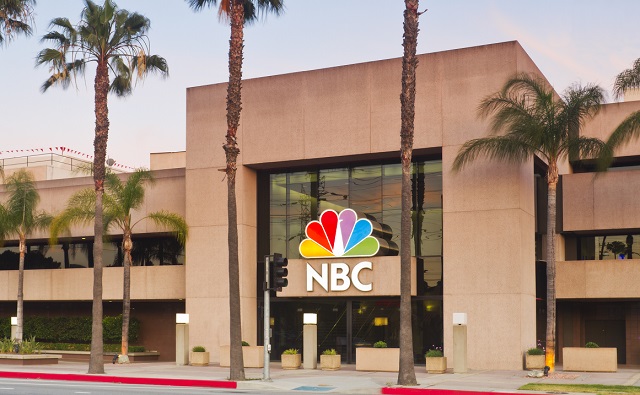 Tuesday morning, President Donald Trump sent out a loaded tweet about NBC and other televisions networks and their “Fake News.” While that part is nothing new, this time Trump went further, bringing up the idea of pulling their FCC licenses, which would take them off the air.
Tuesday morning, President Donald Trump sent out a loaded tweet about NBC and other televisions networks and their “Fake News.” While that part is nothing new, this time Trump went further, bringing up the idea of pulling their FCC licenses, which would take them off the air.
With all of the Fake News coming out of NBC and the Networks, at what point is it appropriate to challenge their License? Bad for country!
— Donald J. Trump (@realDonaldTrump) October 11, 2017
In order to transmit over radio or broadcast frequencies, one needs to obtain a license from the FCC. NBCUniversal holds more than two dozen licenses for NBC, Telemundo, and local stations, but despite President Trump’s desire, they’re not likely to lose them any time soon, especially over news stories he doesn’t like.
LawNewz has reached out to the FCC about this, but has yet to receive a response. Still, history sheds some light on what it takes to lose an FCC license, and how rarely it happens.
You may recall in 2012, activists wanted the FCC to pull the plug on the Fox Network due to allegations of hacking and bribery by parent company News Corp. As you can see by turning on your local affiliate, Fox is still around.
Attorney Peter Tannenwald told The Hill in 2012 when Fox faced these complaints that he didn’t think the FCC would look to revoke licenses unless the alleged actions were “so bad that the FCC really can’t just let it go.”
So what would be that bad? Well, it’s been decades since the FCC did anything close to pulling licenses on this sort of scale, so it takes a lot. The FCC pulled licenses from RKO General in 1987 after they bribed foreign agents and funded American politicians.
Some other examples?
Trump might think that Don Burden‘s situation was close, since he lost five radio licenses for using them to favor political candidates back in the 1960s. Of course, Burden was also found to have been dishonest with billing, rigging contests, and more, so there was a much stronger case against him.
Then there was WLBT, the Mississippi TV station (coincidentally, an NBC affiliate), that lost their license after black viewers complained that the station was only showing white people’s attitudes towards desegregation in the wake of the 1954 Brown v. Board of Education Supreme Court decision.
The FCC has also ruled that non-broadcast activity could warrant a license revocation if it’s “so egregious as to shock the conscience and evoke almost universal disapprobation.” Michael Rice fit the bill when he was convicted of sexually assaulting five children. He lost seven radio licenses after that.
To answer President Trump’s question, that’s the sort of thing (or worse) it takes for a network to lose its license.
[Image via Shutterstock]